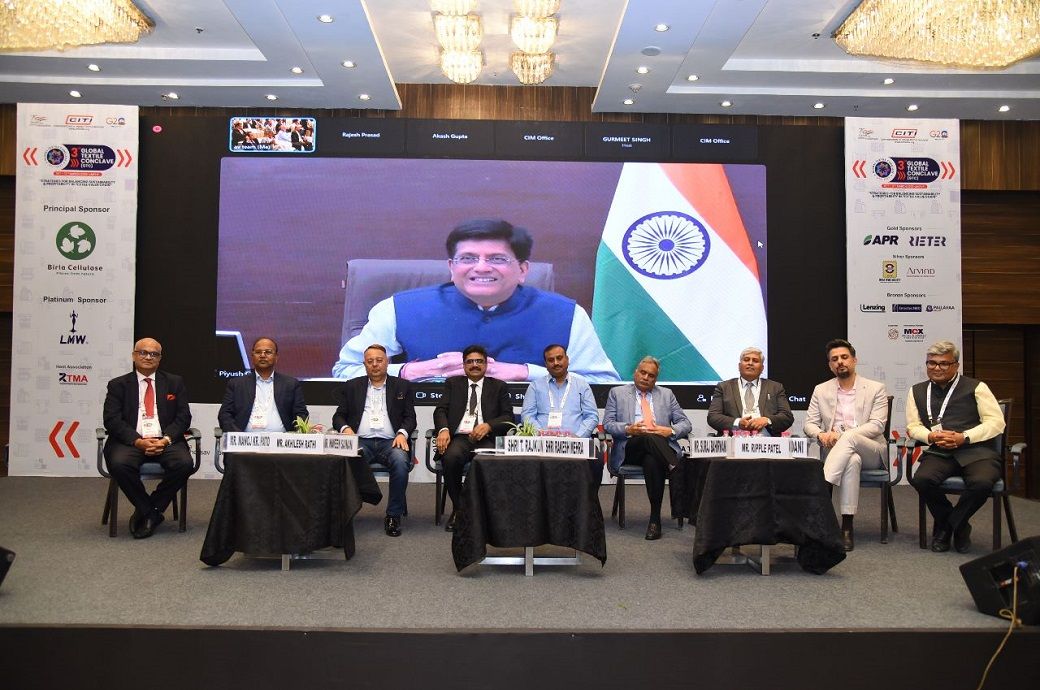
The minster emphasised the need for adopting sustainability that would help overcome the challenges of climate change. He cited the example of the Carbon Border Adjustment Tax reforms in the European Union when it came to consumers demanding transparent practices that could help in reducing the carbon footprint, CITI said in a press release.
The minister mentioned that plug-and-play model infrastructure will be made available where the entire textile value chain can be relocated, and the country’s products can be made to compete in foreign markets to boost the 5 F vision of Prime Minister Modi. He pointed out that the government is doing its best to provide the necessary ecosystem for the textile industry to be present in one place.
He spoke about the Product Linked Incentive Scheme, Samarth, National Technical Textile Mission, and various schemes to develop small textile clusters, Silk Samgra scheme to promote silk, Jute I -care to support the jute Industry, and the ROSCTL Scheme.
Goyal urged industry players to collectively pledge to also mainstream their efforts towards sustainability and circularity in the textile sector. He emphasised industry players to evolve their business around 3 Ps—People, Planet, and Profit collectively and collaborate with premier institutions like IITs, DRDO, and the NIFT for research and development to create sustainable supply chains. He exhorted the industry to make ‘zero defect, zero effect’ their success mantra.
He further urged the industry players to focus on research, sustainable practices, compliance, and innovation including the start-up ecosystem to leverage technology and new ideas. He also asked the industry’s leaders to focus on supporting a circular economy.
Fibre2Fashion News Desk (NB)